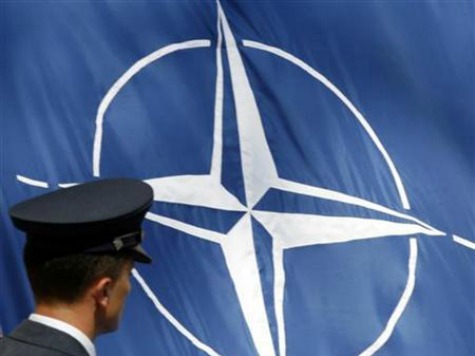
NATO told Eastern Europe countries it is time to stop defense cuts since there is a fear Russia could invade ex-Soviet states, which include NATO members Lithuania, Latvia, and Estonia.
“Russian defense spending has grown by more than 10 percent in real terms each year over the past five years,” NATO Secretary General Anders Fogh Rasmussen told a security conference in Slovakia, one of four alliance members – with Poland, Hungary and Romania – that share a border with Ukraine.
“By contrast, several European NATO countries have cut their defense spending by more than 20 percent over the same period.
“And the cuts have been particularly deep here in central and eastern Europe. This is unsustainable. Now is the time to stop the cuts and start reversing the trend.”
Putin said that the “collapse of the Soviet Union was the biggest geopolitical tragedy of the 20th century.” He invaded Georgia, an ex-Soviet state, in 200. He stole Crimea from Ukraine and Russia has not done anything to stop pro-Russians running havoc in east Ukraine.
NATO claims Russia has over 40,000 troops on Ukraine’s border and satellite images prove the troops are still there despite Russian President Vladimir Putin’s promise to pull back. Estonia and Latvia are already worried they might be Putin’s next targets after Ukraine. A Russian diplomat told the United Nations Human Rights Council that Moscow is worried about the treatment of Russian speakers in Estonia. The Russian ambassador to Latvia told a radio station Moscow is ready to hand out Russian citizenship to Russian speakers in Latvia. Just a few weeks ago, Putin eased citizenship tests for Russian speakers and passed a law that allows Russia to intervene in any country Moscow believes is mistreating ethnic Russians and Russian speakers.
The maltreatment of Russian speakers and ethnic Russians were the reasons Moscow provided to intervene in Crimea. There are almost 60% ethnic Russians in Crimea, but not even half of the citizens in Latvia and Estonia are ethnic Russians.
Unfortunately, though, the ambassadors at the conference told Rasmussen it will be hard to find the money.
“Let me put it very frankly: In Slovakia, I cannot imagine in the following years any scope to increase defense spending,”
Slovak Prime Minister Robert Fico said earlier.
Czech Prime Minister Bohuslav Sobotka said his government would look to stop a spending decline in its 2015 budget but saw no significant increases.
The Slovaks and Czechs each spent around 1 percent of gross domestic product on defense last year, down about half a percentage point since 2009, according to NATO statistics.
Poland was the closest to the goal of 2 percent that NATO sets as a target for its members. It spent 1.8 percent of GDP, and has expressed a willingness to increase that.
Poland’s Prime Minister Donald Tusk told the conference NATO needed to have a larger presence in eastern Europe in light of the crisis in Ukraine.
NATO has increased their presence in the east. In April, Rasmussen told a news conference the world “will see deployments at sea, in the air, on land to take place immediately.” He also promised more air patrols on Poland and Romania’s eastern borders.
Vice President Joe Biden visited Poland and met with leaders from Lithuania, Latvia, and Estonia just days before Russia annexed Crimea. He promised America’s NATO allies the US will support them against Russia. The US sent 300 air troops and 12 F-16 fighters to Poland. British Defense Secretary Philip Hammond sent six RAF Jets to the Baltic States and France sent eight fighter jets.

COMMENTS
Please let us know if you're having issues with commenting.